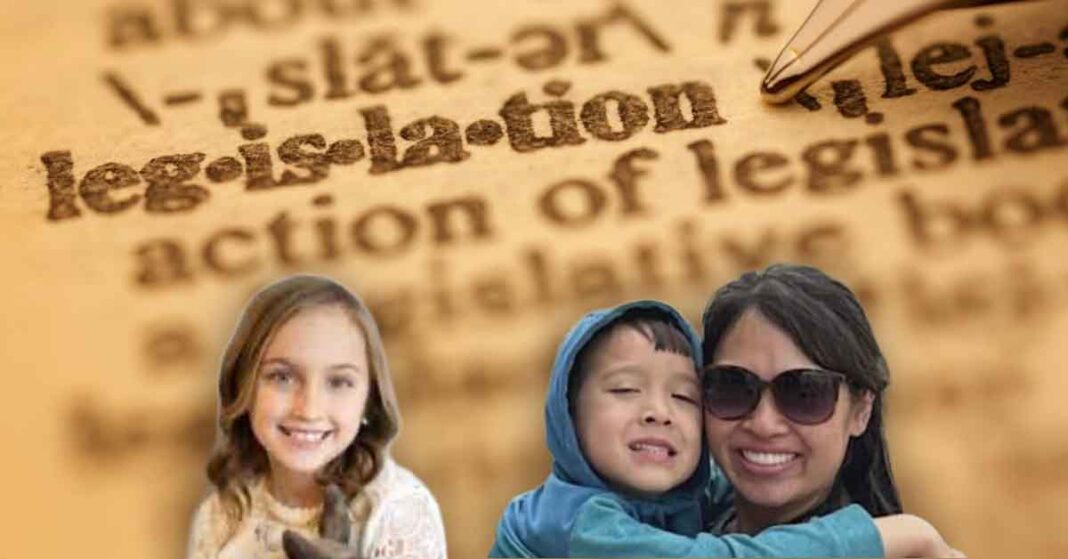More states are increasing efforts to address the rising incidence of food allergies among the nation’s youth, 1 in 13 of whom are coping with the condition. Timely access to epinephrine, essential for halting and reversing the progression of life-threatening anaphylaxis, is central to three new legislative initiatives.
Oklahoma
House Bill 2047 — known as the Kate Cole Act — mandates that public schools must call 911 immediately after administering epinephrine to a student. The law is designed to improve responses to anaphylactic reactions and will take effect this summer.
The law also mandates that school staff undergo annual training to understand food allergies, recognize anaphylaxis, and properly administer epinephrine.
[Trigger Warning]
The legislation was prompted by the tragic death of Emerson Kate Cole, a 10-year-old student from Amarillo, TX, who suffered anaphylaxis on January 17, 2023, after exposure to milk, but did not receive epinephrine as detailed in her 504 plan.

The Cole family subsequently sued the Amarillo Independent School District, claiming that on that day, Emerson was having lunch at De Zavala Middle School when she experienced the telltale signs of an allergic reaction and went to the nurse’s office. Unfortunately, the nurse was not present.
A school official called Chelsea Acosta, Emerson’s mother and a plaintiff in the suit, asking if they could administer Benadryl to help alleviate her reaction. Ms. Acosta agreed, and Emerson received the antihistamine, which she promptly threw up. She was also given an unspecified “breathing treatment,” presumably an inhaler, while waiting for emergency services to arrive.
EMTs arrived on the scene and initiated treatment for cardiac and respiratory arrest, but she was unable to recover and died in the hospital two days later.
Said Rep Preston Stinson, author of the bill:
Parents deserve to know that if their child experiences a severe allergic reaction at school, the adults around them will know what to do and act quickly. This law is a step forward in protecting Oklahoma students and honoring Emerson’s memory.
Florida
A new Florida law, effective July 1, will improve access to epinephrine and emergency plans for public school students at risk of anaphylaxis. The legislation (SB 1514/HB 1197) requires that all K-8 public school staff be prepared to administer emergency epinephrine to students experiencing anaphylaxis on school grounds or during school-sponsored activities.
Sen Carlos Guillermo Smith, a sponsor of the bill emphasized the law’s importance, stating:
The passage of this new law will save lives and give parents peace of mind that their child can safely participate in school activities with personnel who are ready and able to administer EpiPens in case of a medical emergency.
This would not have happened without the support of local moms like Sherry Isler, who spent years urging lawmakers to take action. The victory belongs to families like hers who made a real difference.

Orange County mother Sherry Lin Isler, a key driver of the legislation, described it as “years in the making.” She recounted her personal motivation, stating:
When my son Lincoln was unable to attend before school care, due to a lack of training of personnel on the administration of epinephrine, I was determined to make a change that guaranteed his access to all school-sponsored events and ensured his safety and the safety of other kids with these serious reactions. While the battle has been uphill, it is today that we celebrate this major victory for the health and safety of our students.
Minnesota
On May 16, Minnesota Education Bill HF1306/SF1740, sponsored by Rep Sydney Jordan, passed the House. Among other provisions, the legislation would expand the allowable delivery systems for epinephrine in schools.
Previous epinephrine legislation was enacted during a time when the only FDA-approved epinephrine delivery devices were auto-injectors. The bill would expand these provisions to allow new epinephrine devices, such as nasal sprays. It would also require the Health Department to provide schools with a standing order for the distribution of epinephrine delivery systems.
- Oklahoma enacts new law to improve school response to severe allergic reactions — KTUL
- ‘This new law will save lives’: Governor signs measure improving anaphylaxis treatment in schools — Florida Politics
- Substitute teacher program, charter school PSEO access in education policy bill that clears House — Minnesota Legislature





